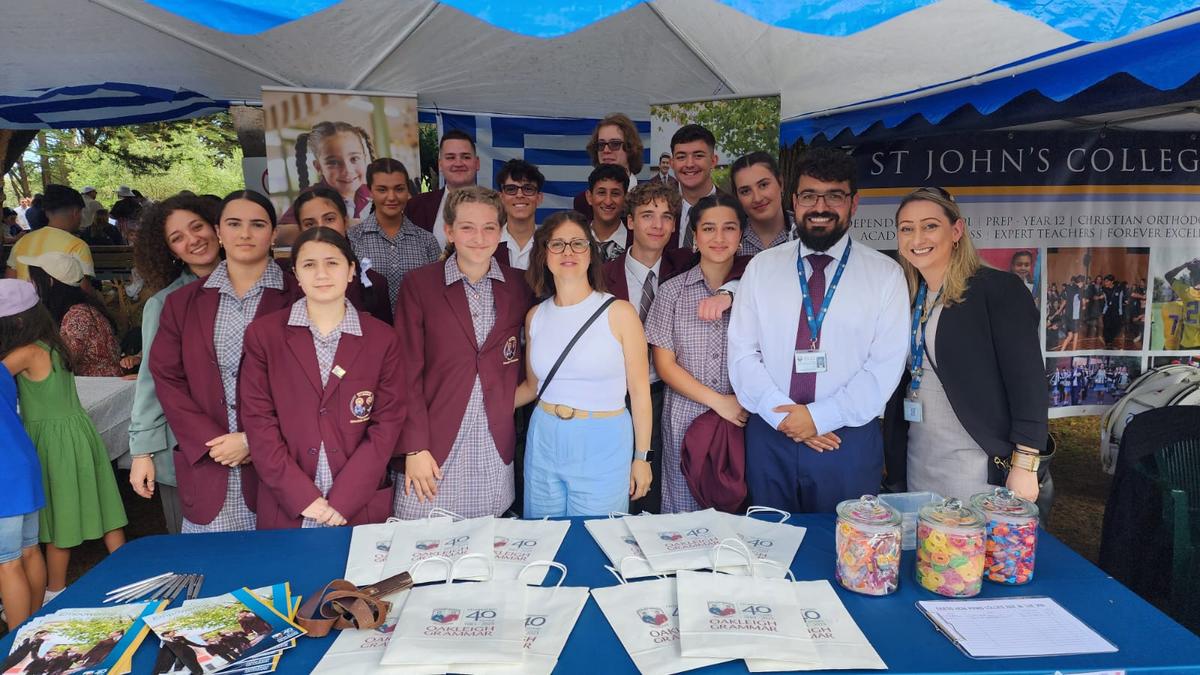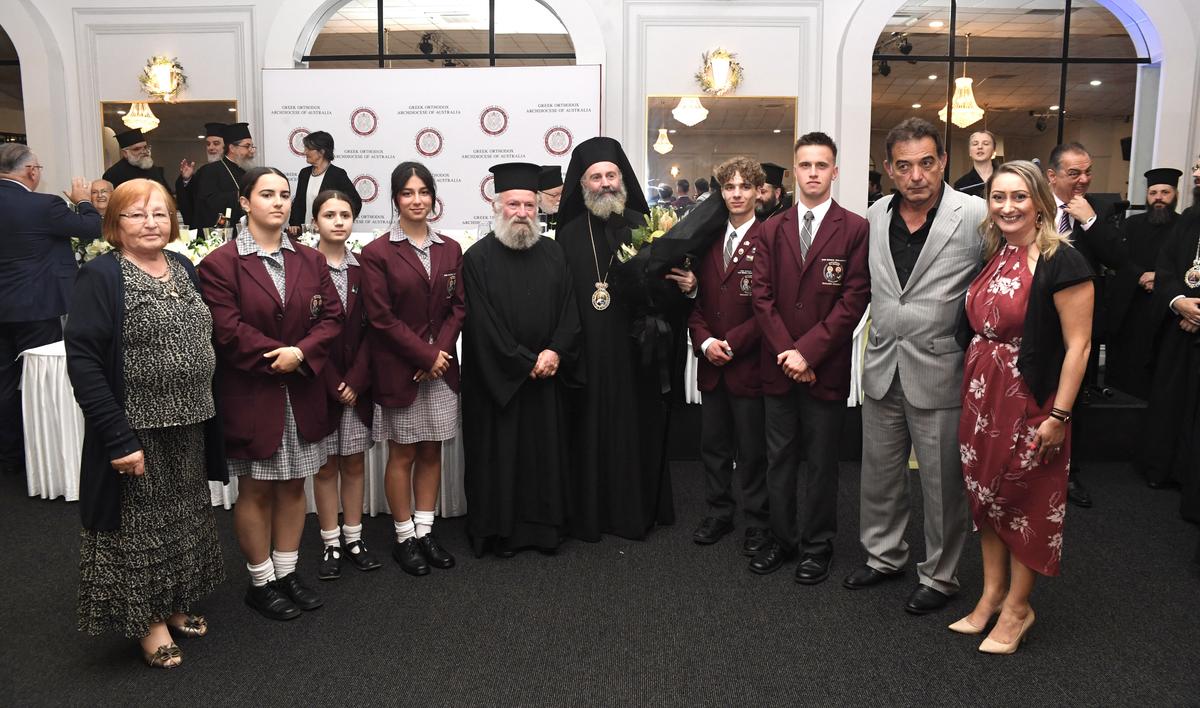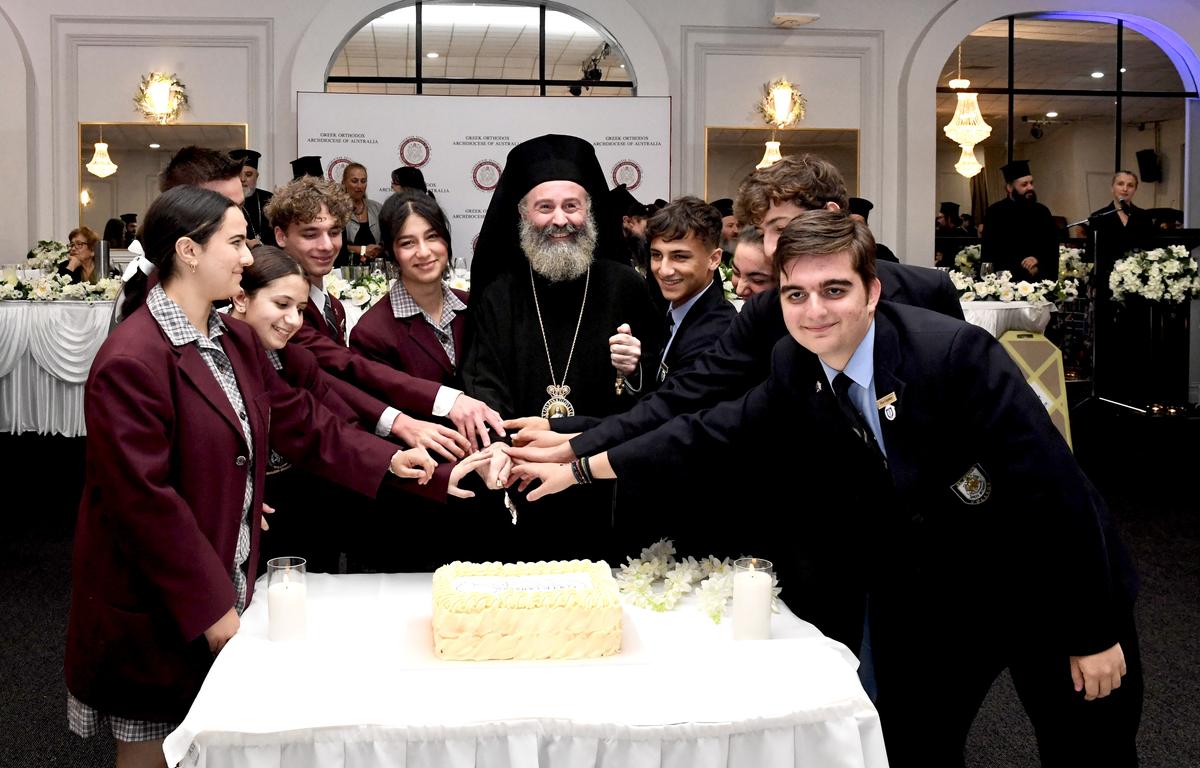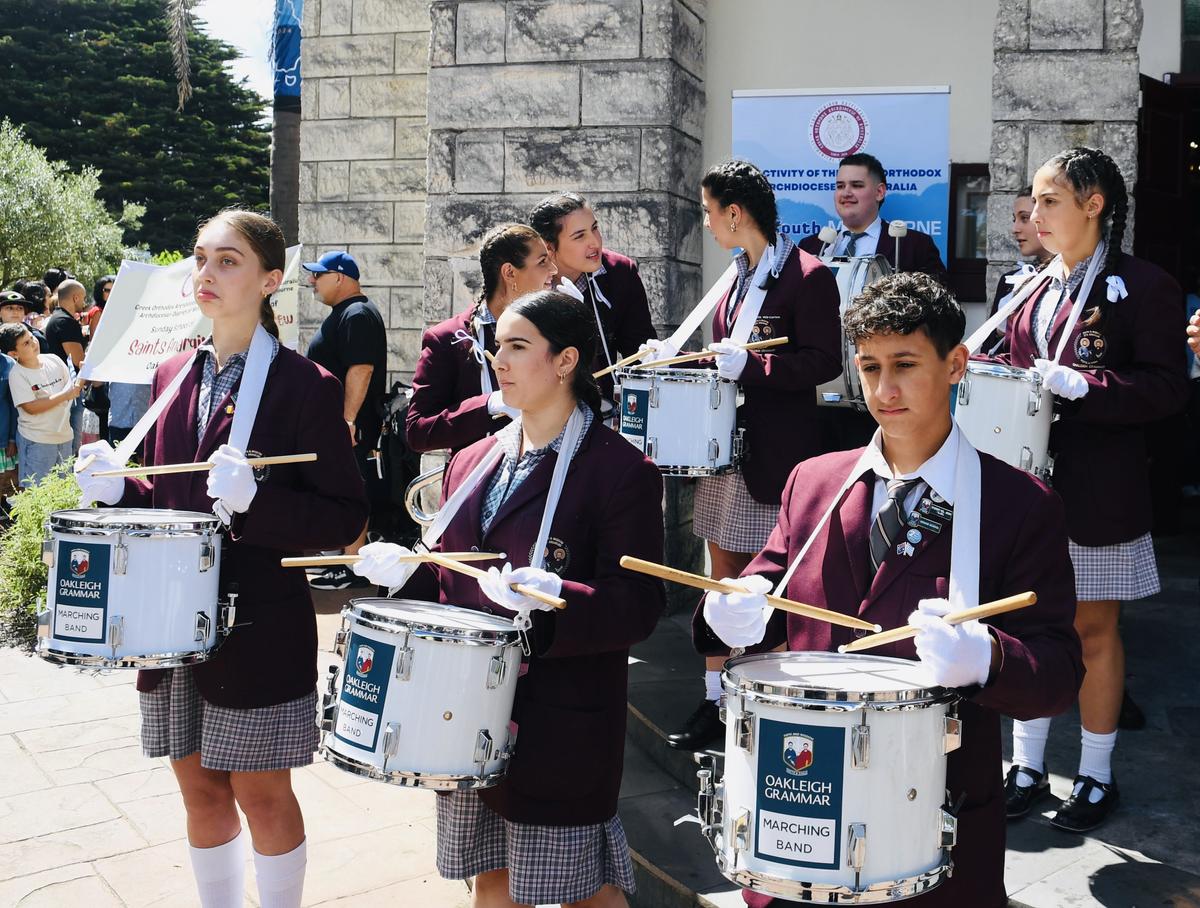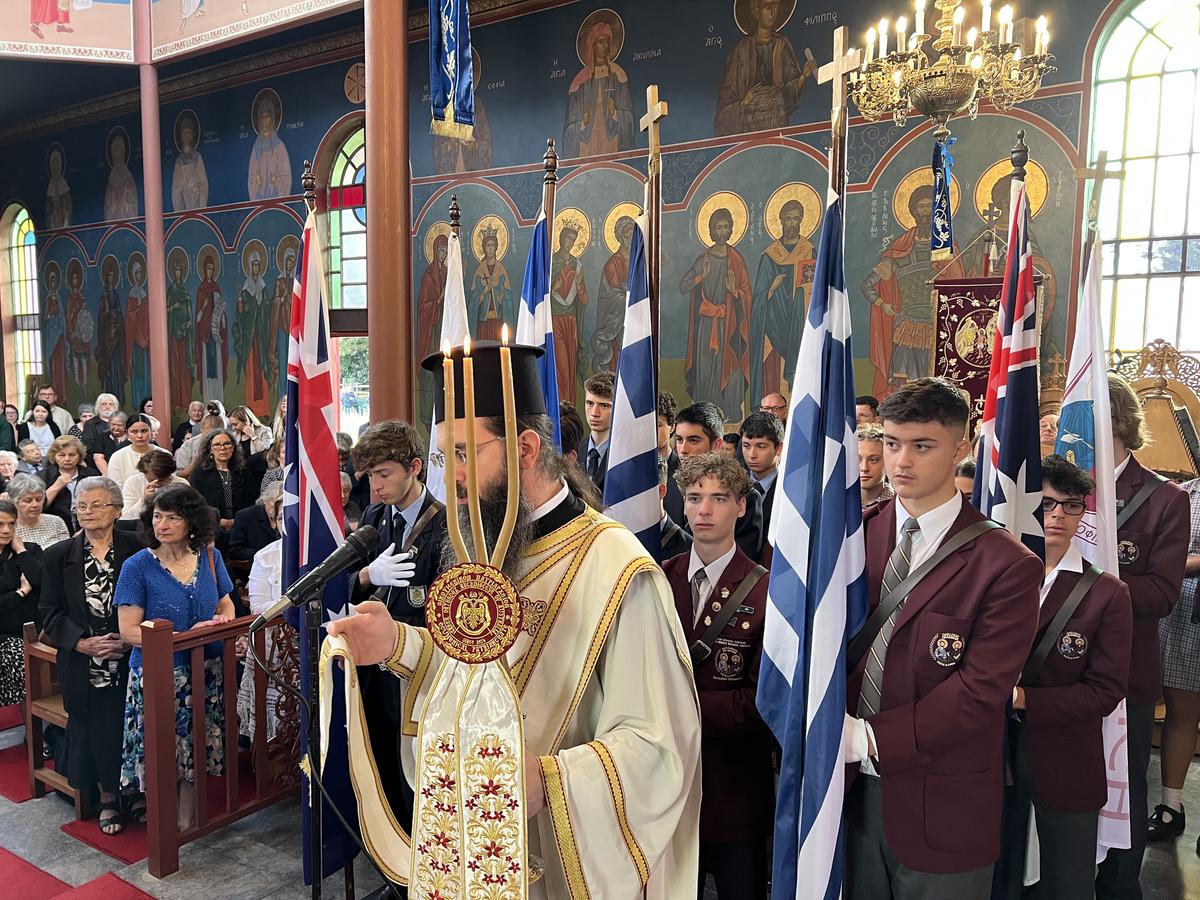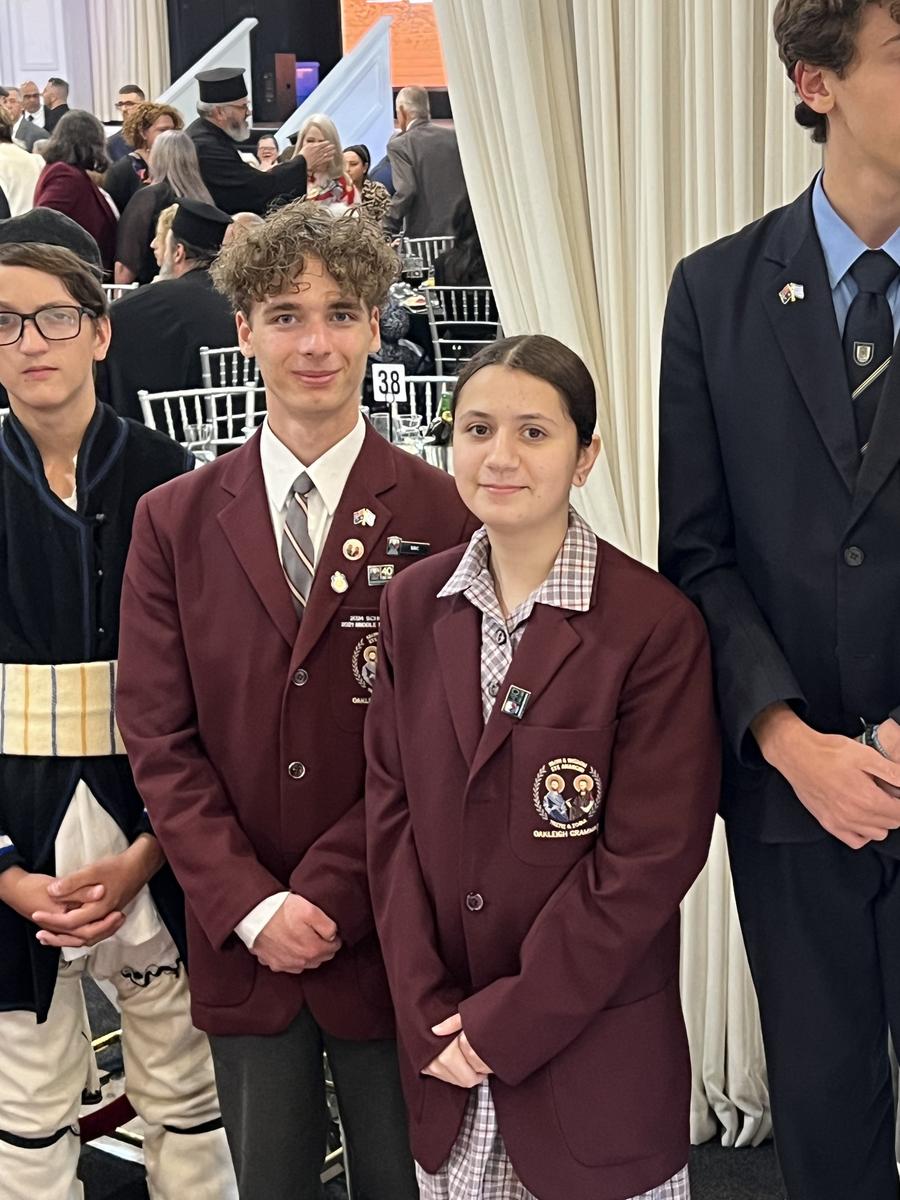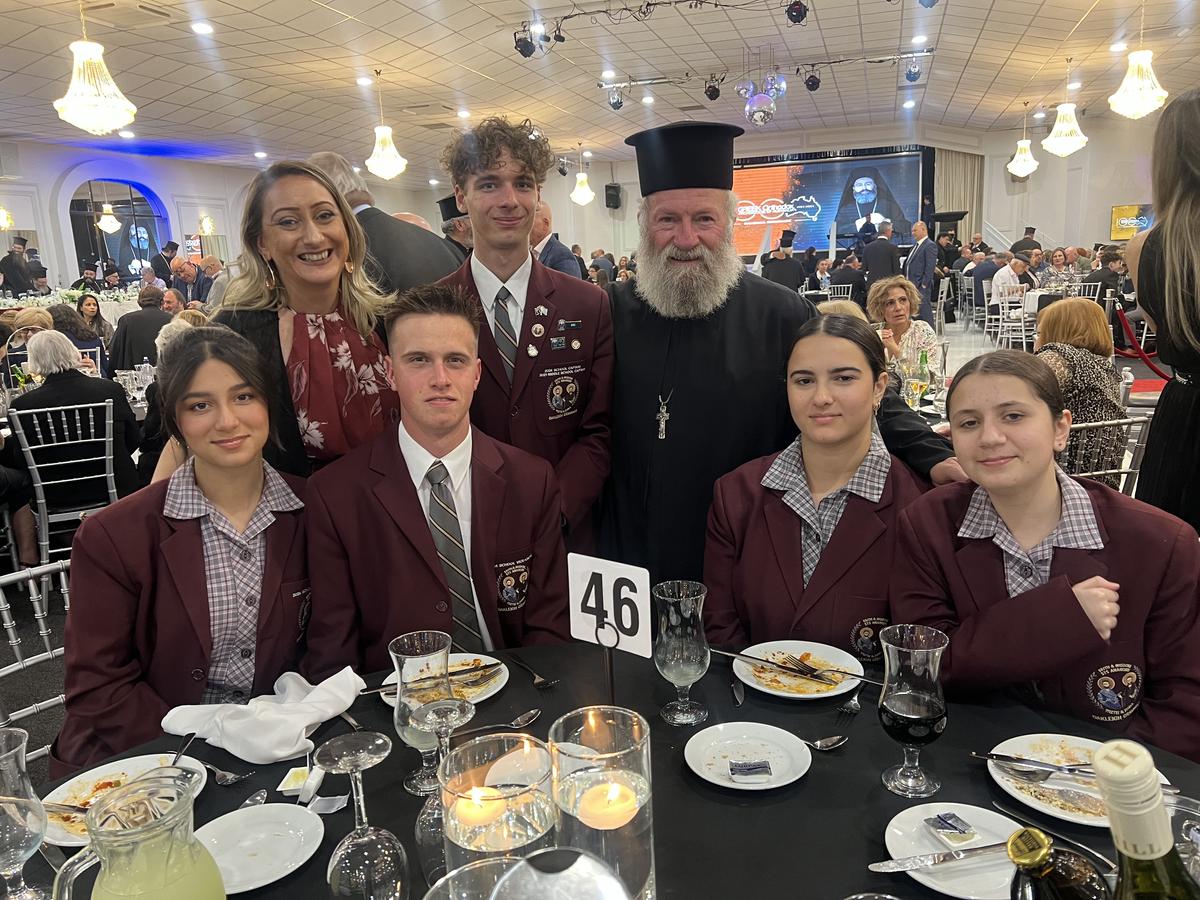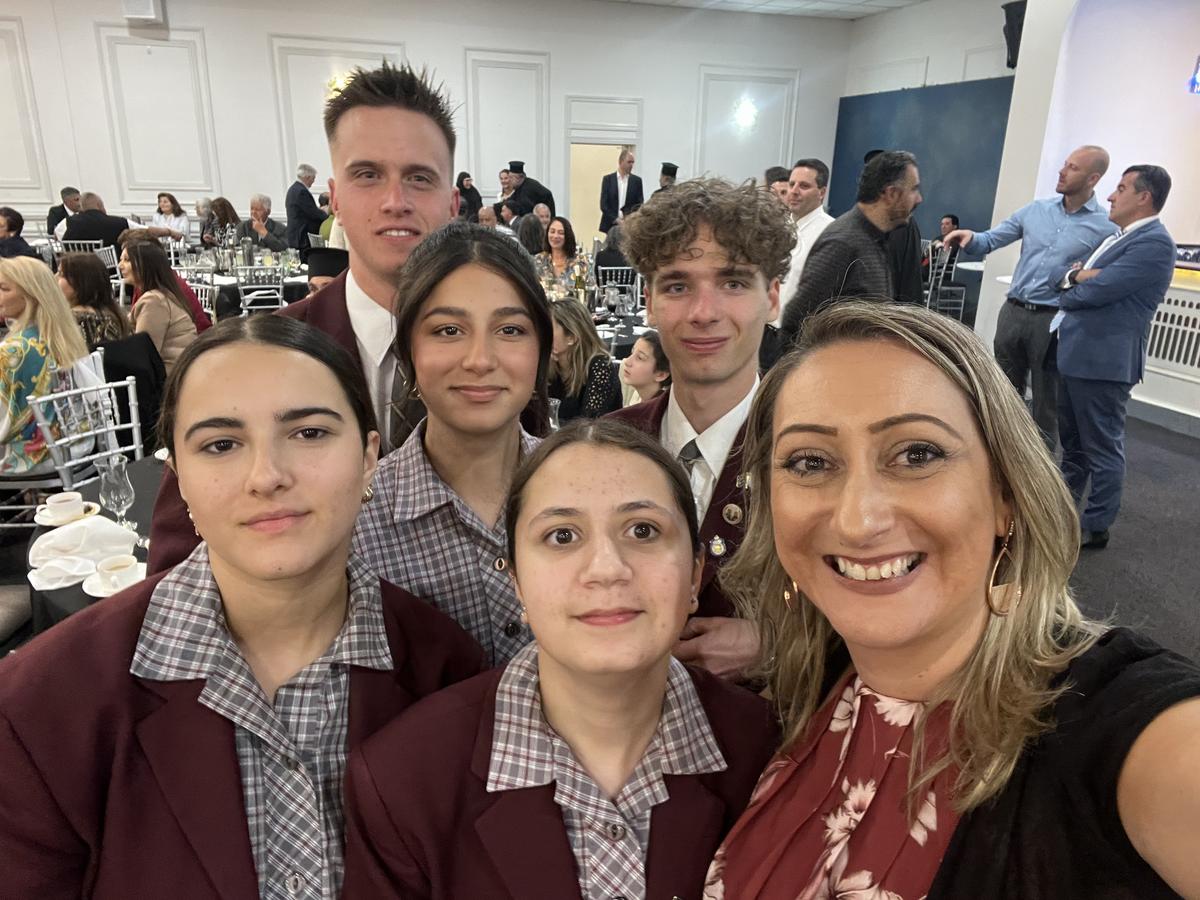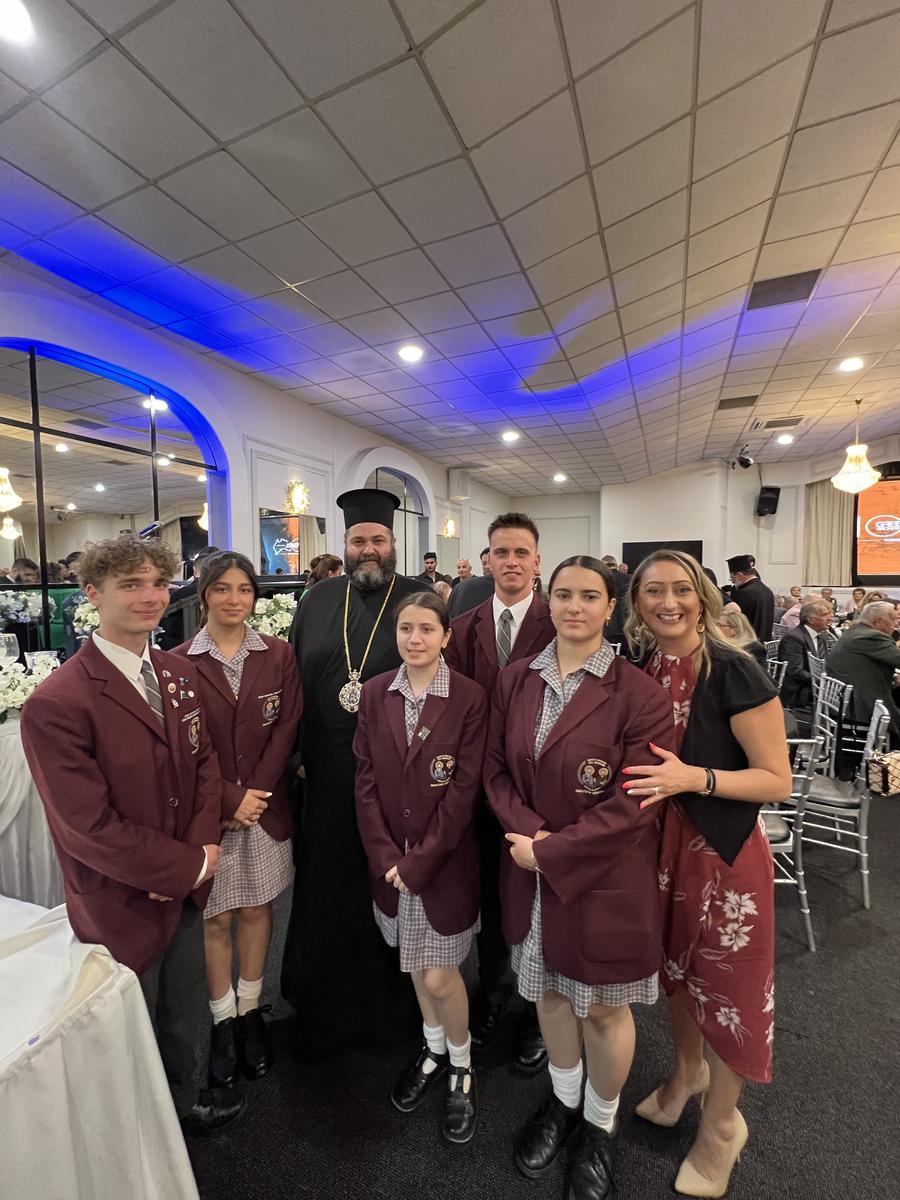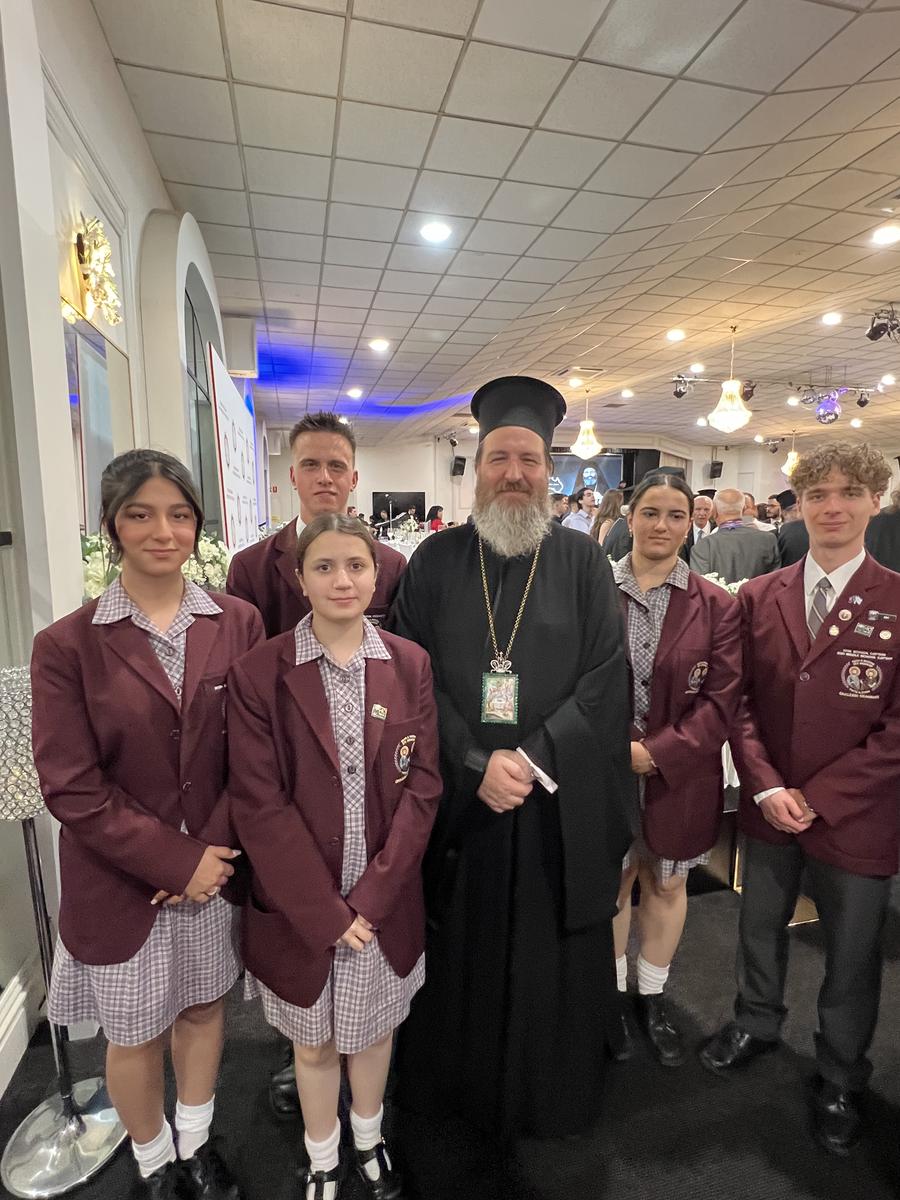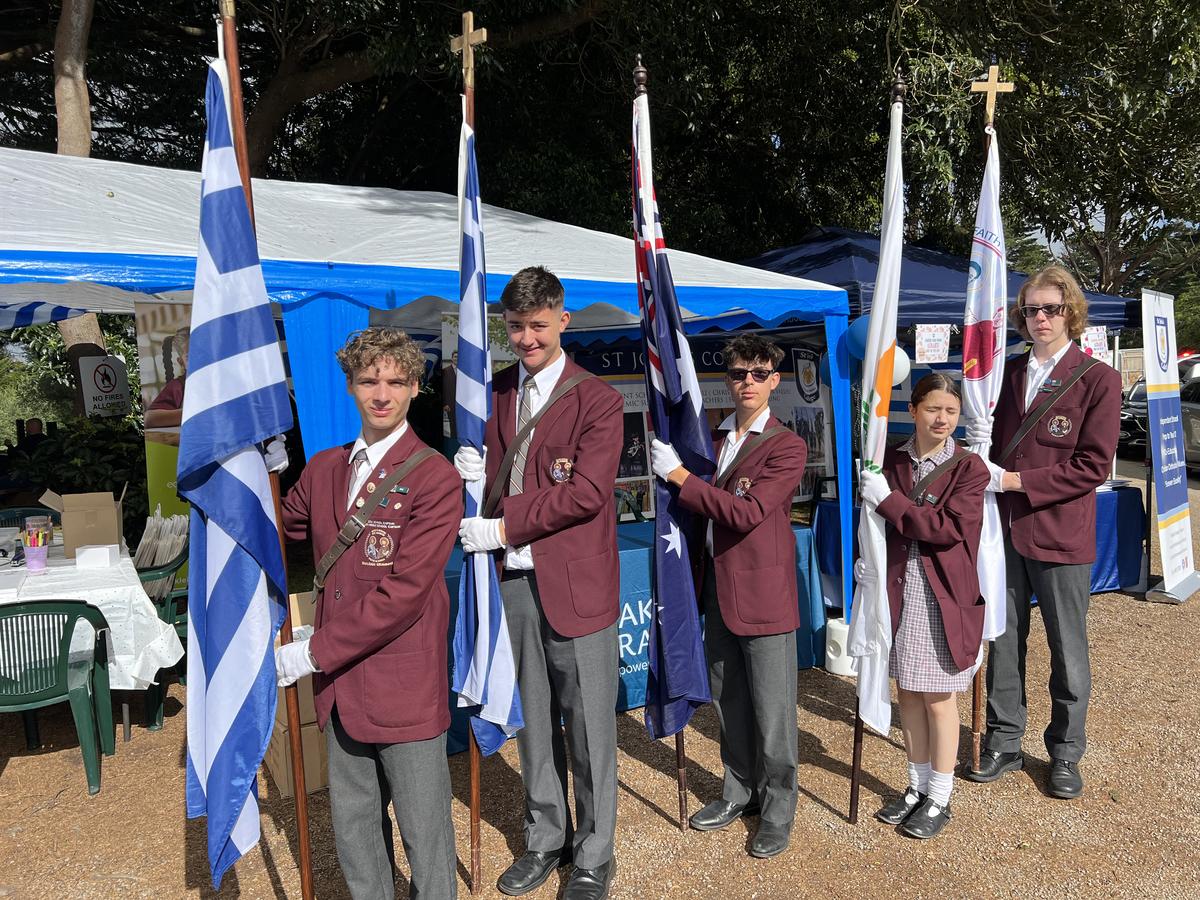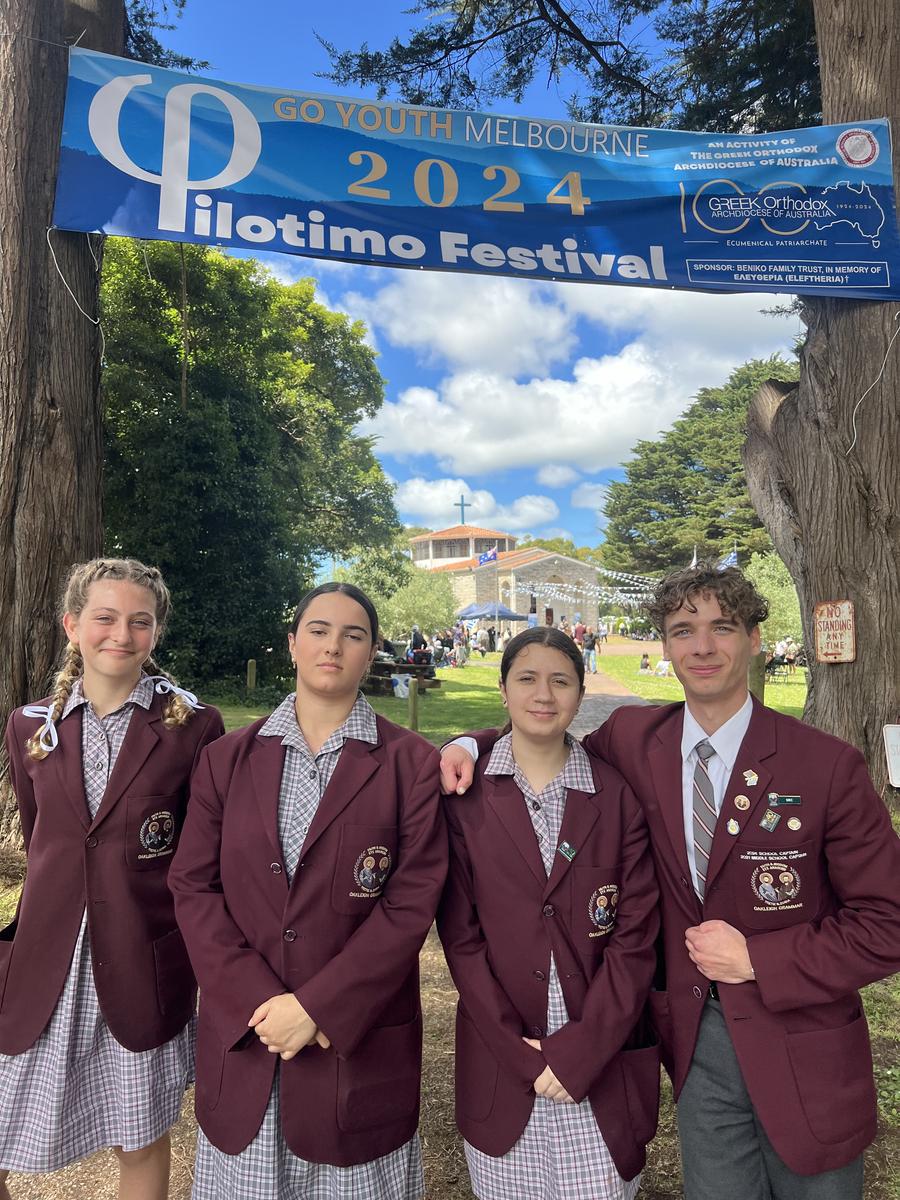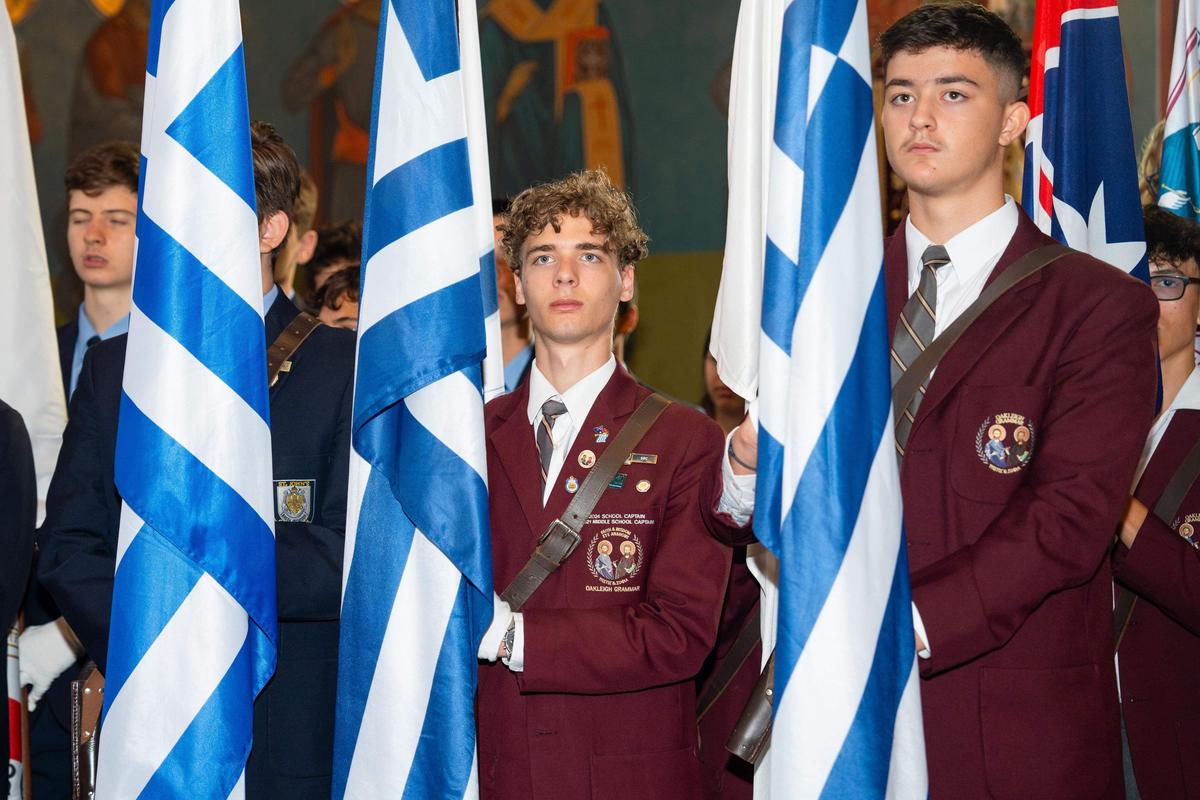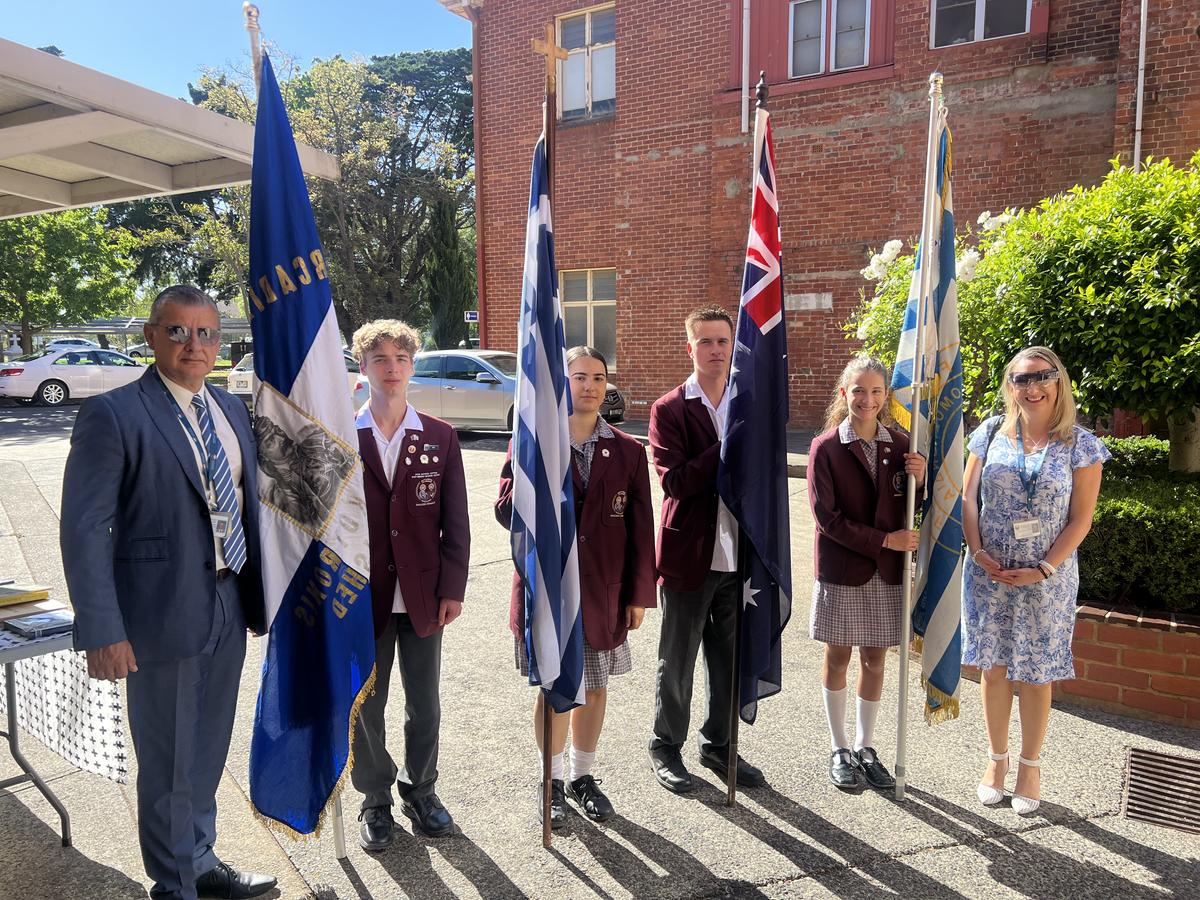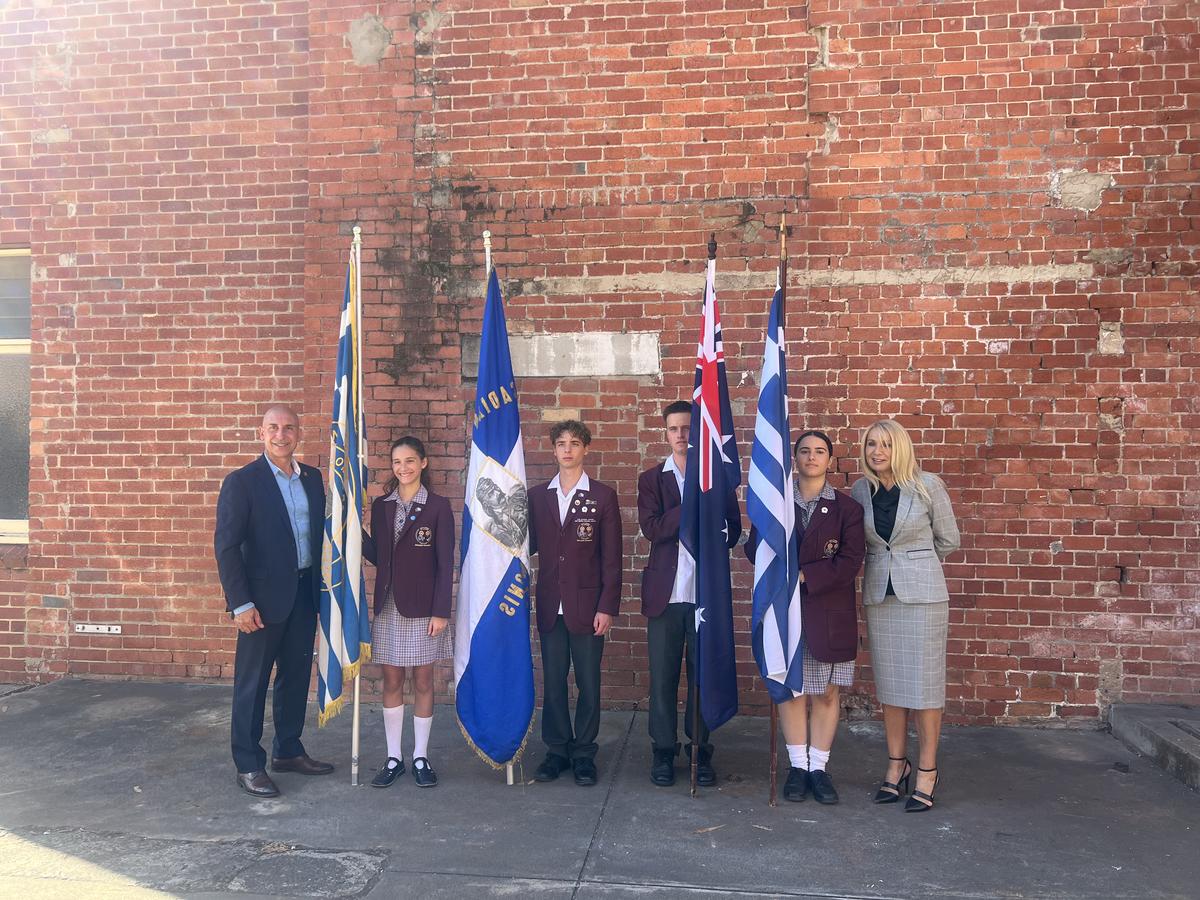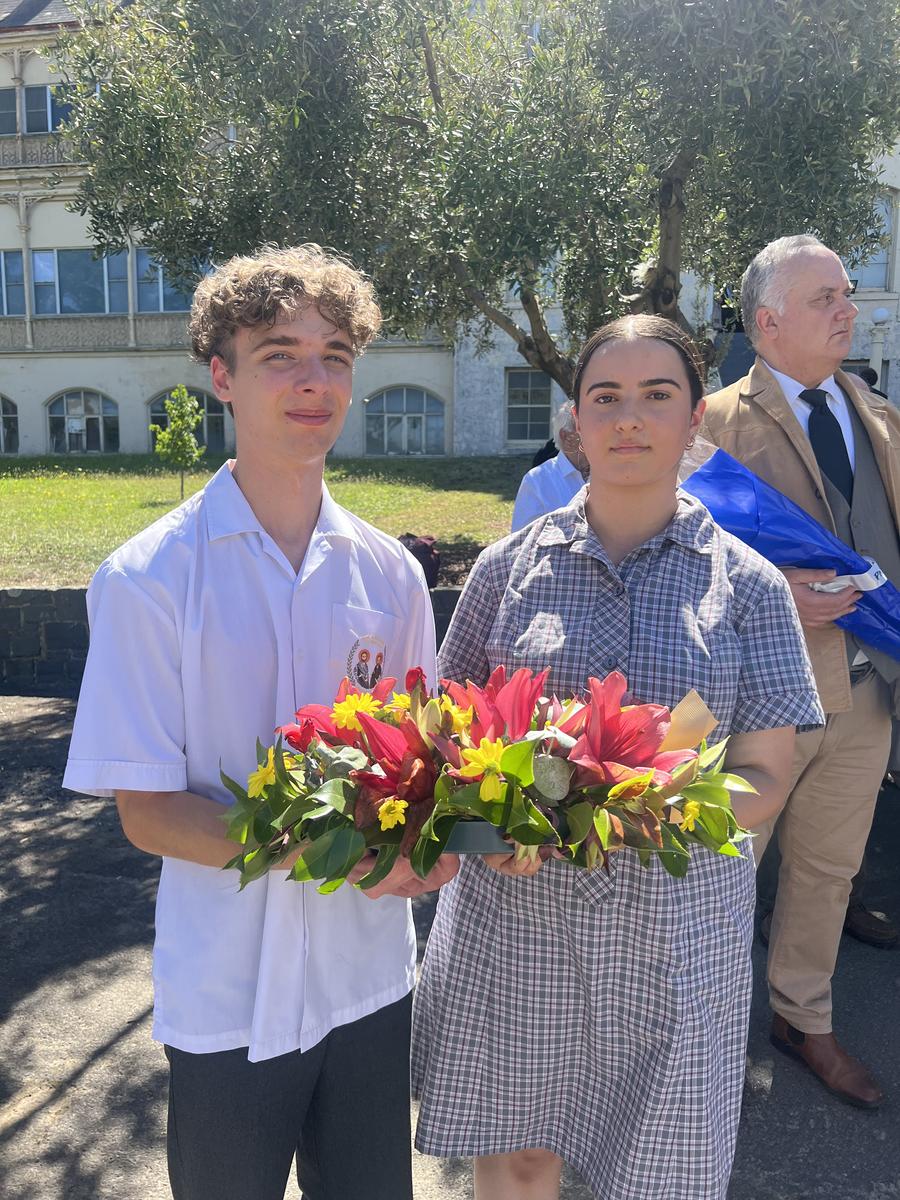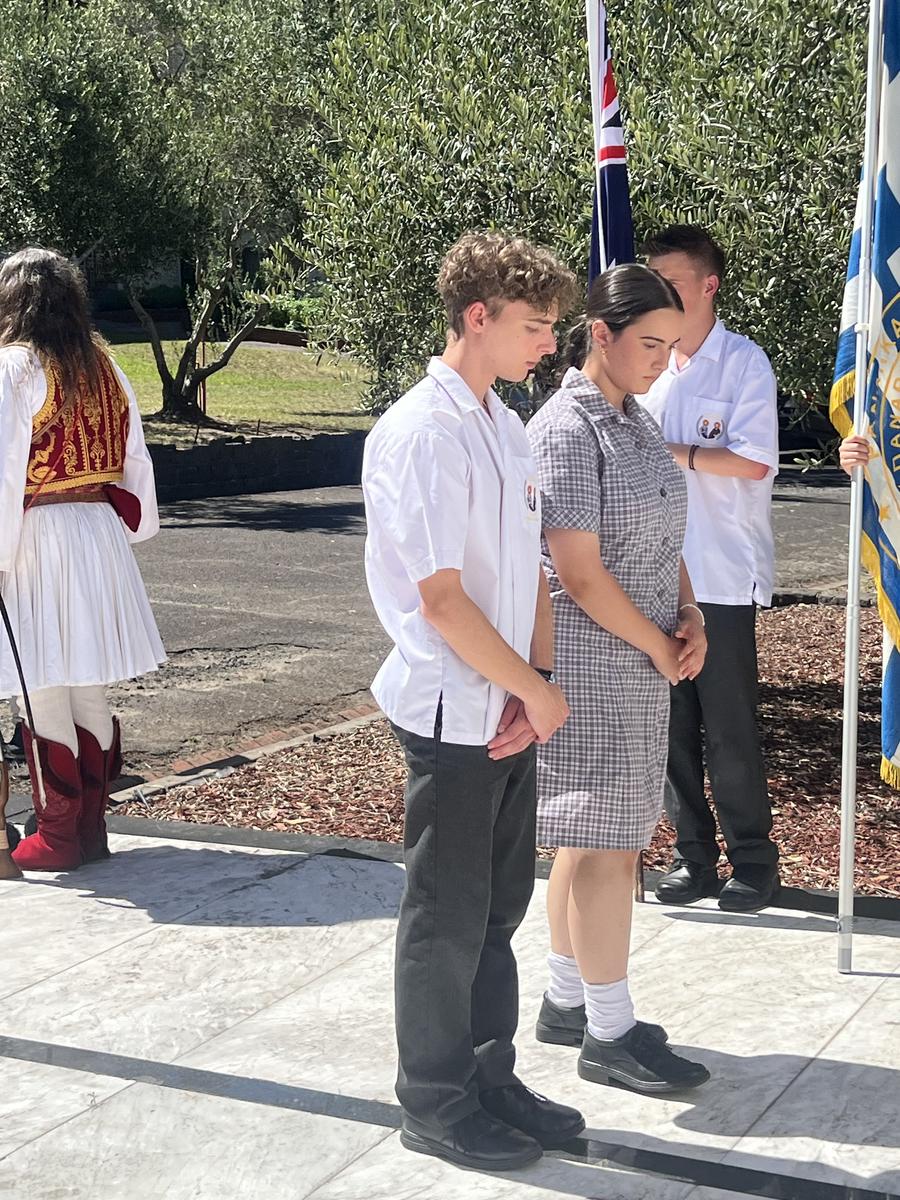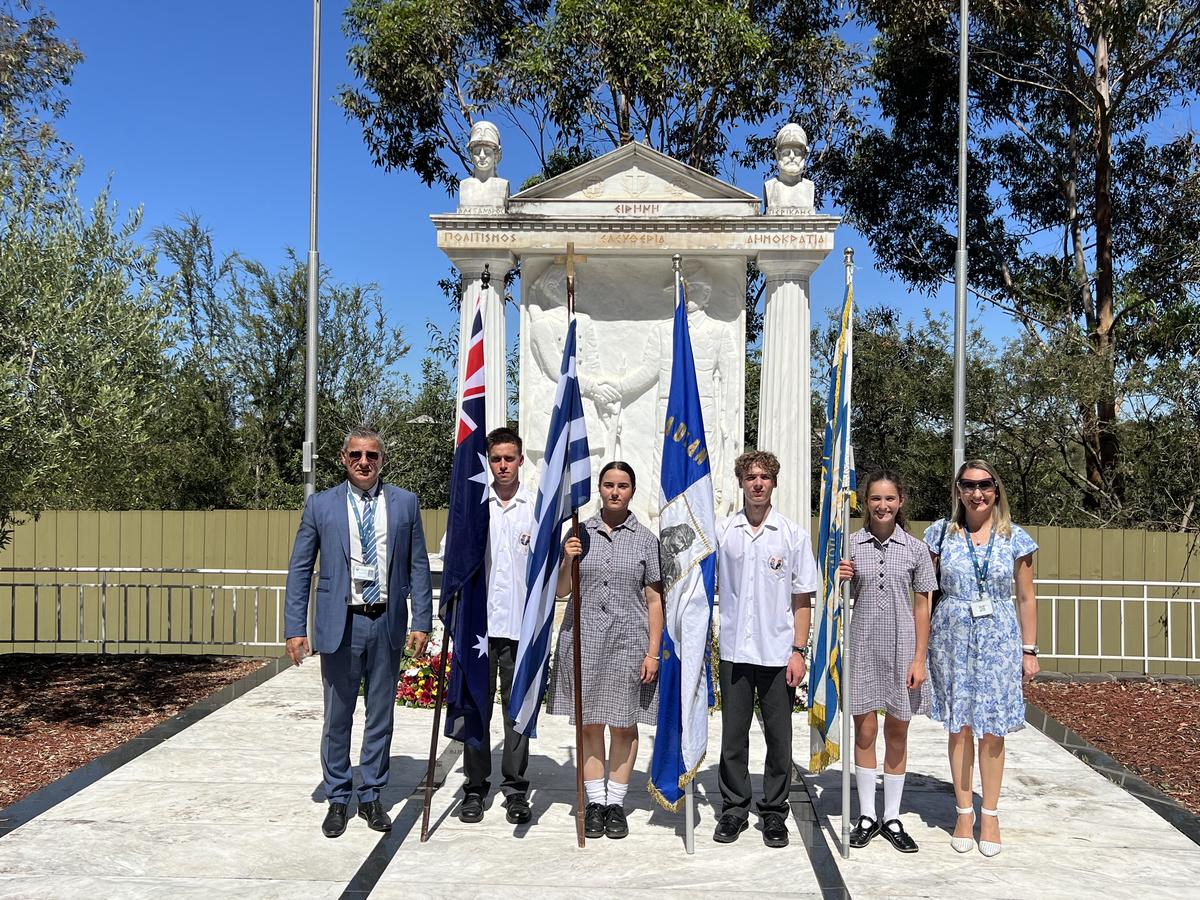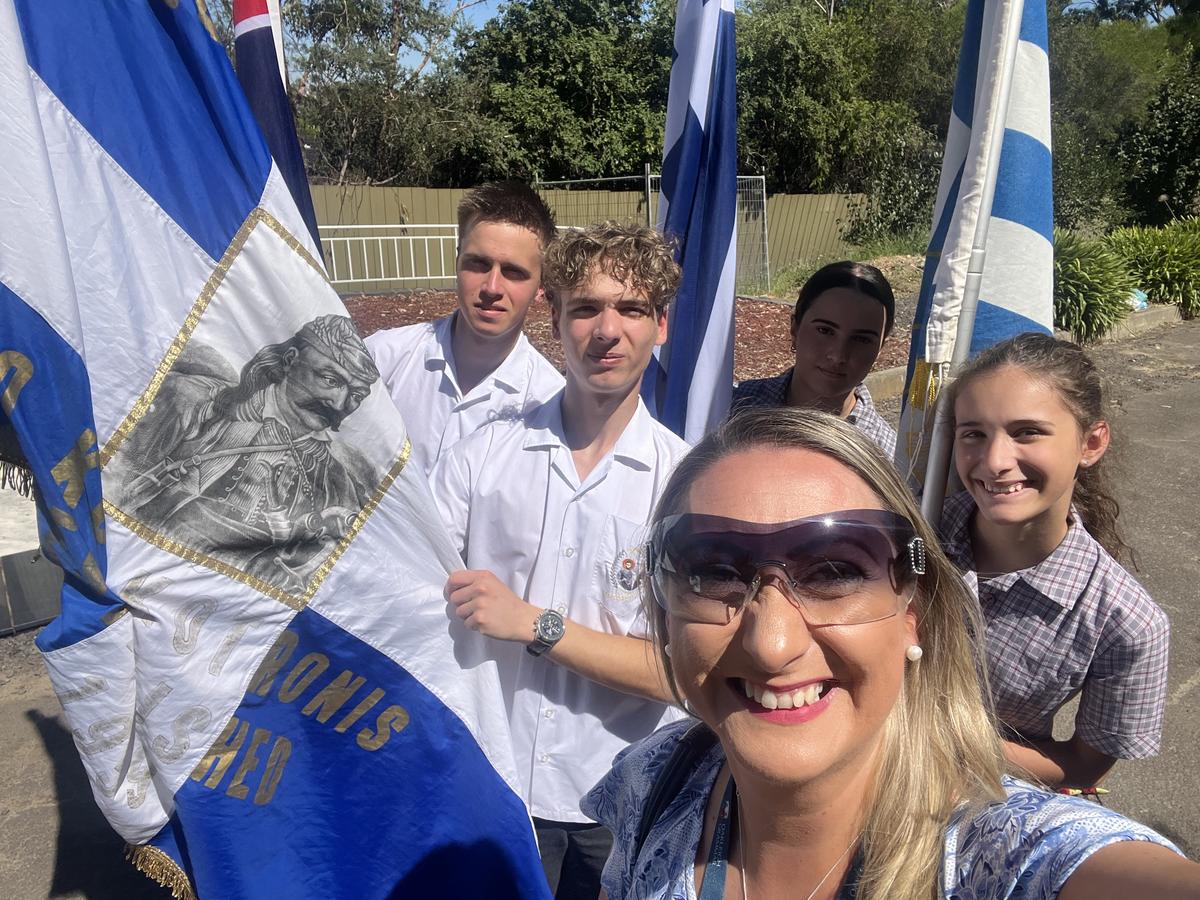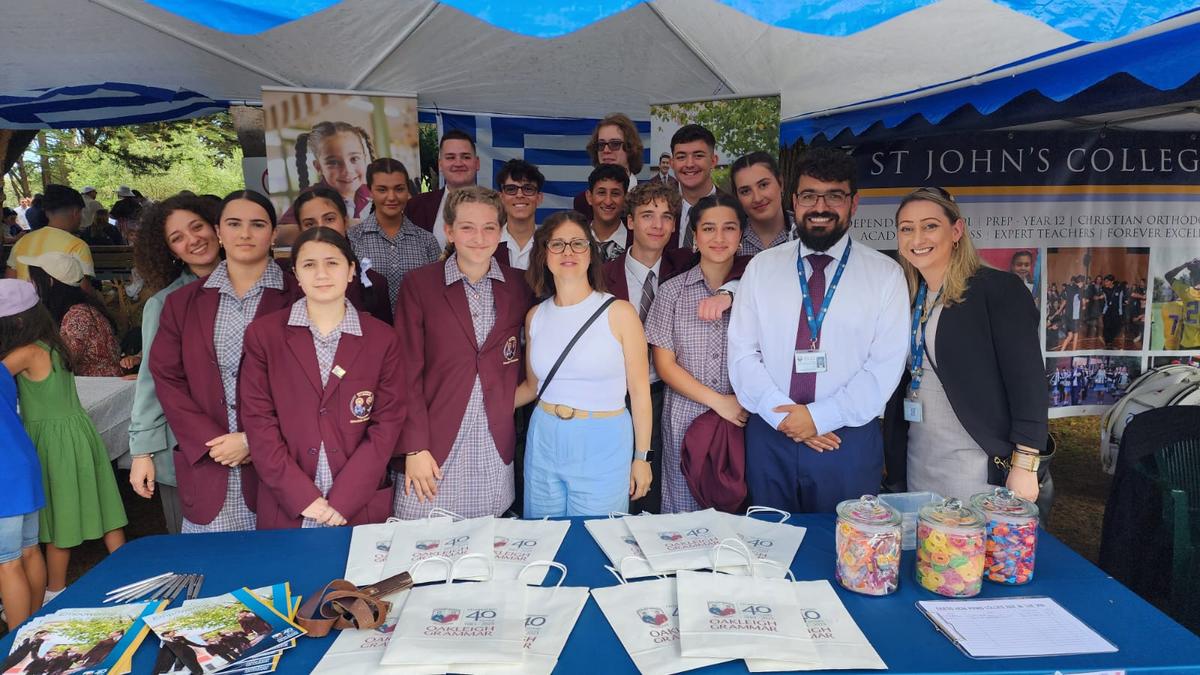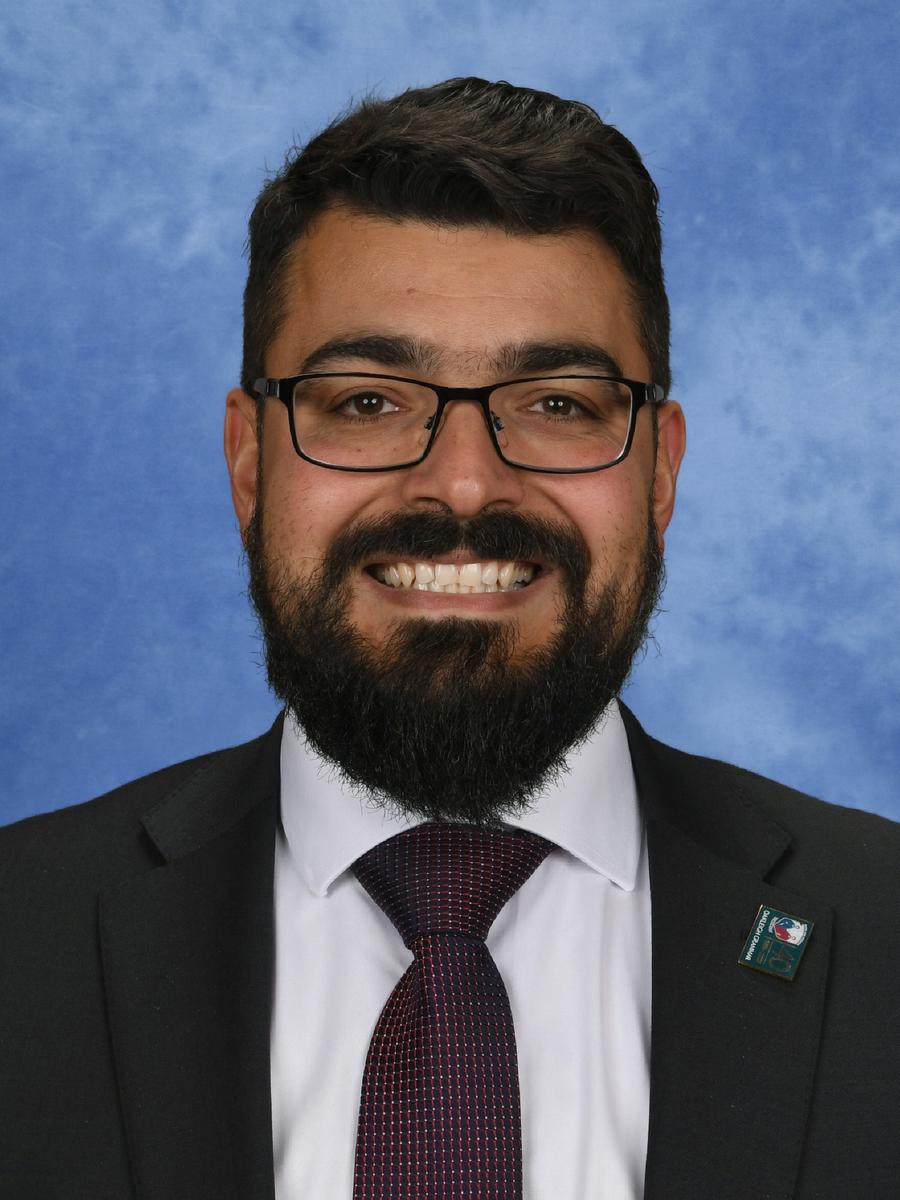Hellenic Culture

Hellenic culture is hugely important to Australian culture, with Australia having the third largest Greek diaspora in the world and 50% of it living in Victoria. Every year, different events such as commemorations, wreath laying ceremonies, lectures, presentations, exhibitions, competitions and more are organised by different Greek organisations. Oakleigh Grammar School has the honour to be invited to all these events and students represent the school community with pride.
The year started with His Eminence Archbishop of Australia Makarios’ Name Day. On Sunday 21st of January, School Captains and Vice Captains attended a special dinner. They had the opportunity to meet the Primate of the Greek Orthodox Archdiocese of Australia wishing him Happy Name Day on behalf of Oakleigh Grammar community.
Oakleigh Grammar drummers and flag bearers participated at the Greek Orthodox Archdiocese of Australia District of Melbourne Inaugural “Philotimo Festival” which held at the Greek Orthodox Monastery of Panagia Kamariani, Red Hill on Sunday 28th of January. This was another great opportunity for students to be part of a very special festival dedicate to the youth of our society.
For the first time, the Panarcadian Association of Melbourne and Victoria “O KOLOKOTRONIS” invited Oakleigh Grammar to participate in a memorial service and a wreath laying ceremony dedicate to the Greek Hero Theodoros Kolokotronis who fought during the Greek Revolution. The event took place on Sunday 4 February at the Holy Monastery in Northcote. School Captain Sotiris Bakalis and Year 12 student Georgia Christofi laid a wreath on behalf of school community.
Thanks to those students who dedicated their personal time to attend all these events and represent Oakleigh Grammar School.
Natasha Spanos
Hellenic Culture Coordinator
Middle and Senior School Orthodox Christian Studies
What a blessed start to the year. We commenced with our whole school blessing presided by His Grace Bishop Kyriakos of Sozopolis supported by many clergy. Our Byzantine Choir chanted the service also.
Our theme this year at Oakleigh Grammar is to ‘Strive for Greatness’. Across the school, in our Orthodox Christian Studies classes, our students have explored this biblically inspired theme through the lens of Marks Gospel Chapter 10:35–37, 41–45. To be great, one needs to be a servant. To cultivate their God given gifts and talents and multiply these. We have explored what attributes one needs to cultivate to be great. This is primarily the virtues or fruit of the spirit. Together with the virtues we have vices. Each of us has the ablity and the opportunity to turn our vices into virtues, with persistence, prayer and humility.
Below is a table that can assist you and your children in developing virtue in order to be great.
| VIRTUES | EXPLANATION | VICE | EXPLANATION |
| Obedience | Adopting a positive attitude toward authority figures and being quick to listen to them. Desiring to obey God and joyfully do His will. | Disobedience | Complaining, not doing what we are asked to do the first time. |
| Repentance | Being sorry for our mistakes and doing what is right to make up for them. | Self-satisfaction | Making excuses for ourselves and not admitting our wrongdoings. |
| Forgiveness | Letting go of our bad feelings for someone who did something wrong to us. Keeping them in our hearts and praying for them. | Hatred Enmity | Staying mad with a person that wronged us. Wanting to harm them to get revenge. |
| Silence | Talking only when it is useful. | Boastfulness Slander | Complaining, bragging, gossiping, criticizing others. |
| Self-control | Refraining from hurtful behaviors by thinking through consequences before speaking or acting. Eating with measure and keeping the fasts. | Rashness Greed | Acting impulsively. Desiring more than we need or never being pleased with what we have. |
| Purity | Keeping our mind, body, and soul clean. | Uncleanliness | Thinking about or doing things that are harmful to ourselves. |
| Generosity | Joyfully sharing what we have. Being concerned about the well-being of others and quick to comfort and encourage them. | Envy | Wanting what other people have. Disliking people because of the things they have. |
| Meekness | Staying calm and pleasant even when things don’t go our way. | Aggressiveness | Getting upset in unpleasant situations and showing it loudly and aggressively. |
| Humility | Thinking of others before ourselves. Recognizing that everything good we have is a gift from God. Acknowledging our mistakes. Accepting advice and criticism graciously. | Pride | Acting as if we are more important than everybody else. Getting upset if someone corrects us or gives us advice. |
Dean Damatopoulos
Orthodox Christian Studies Leader


